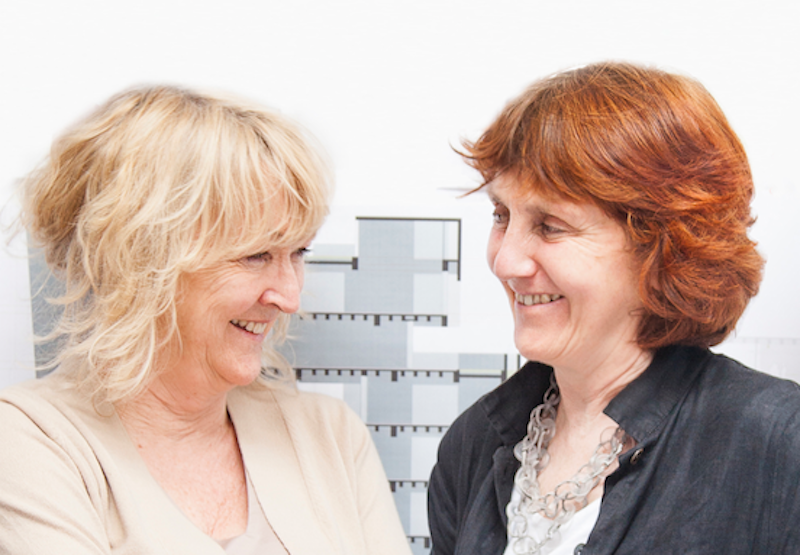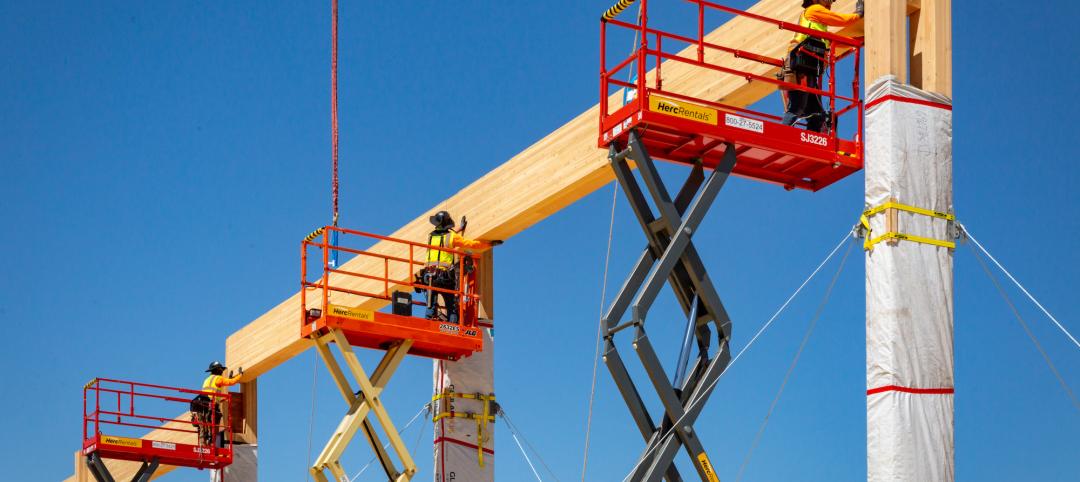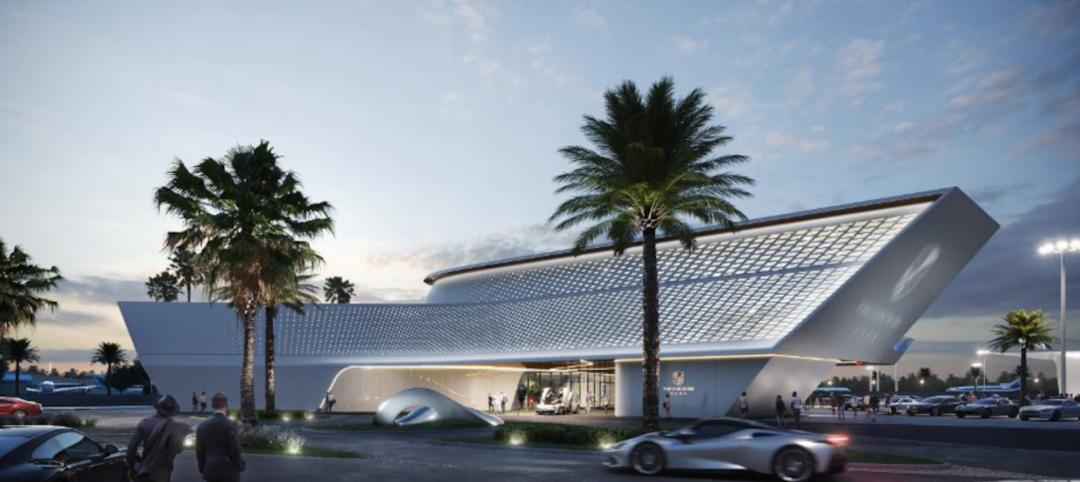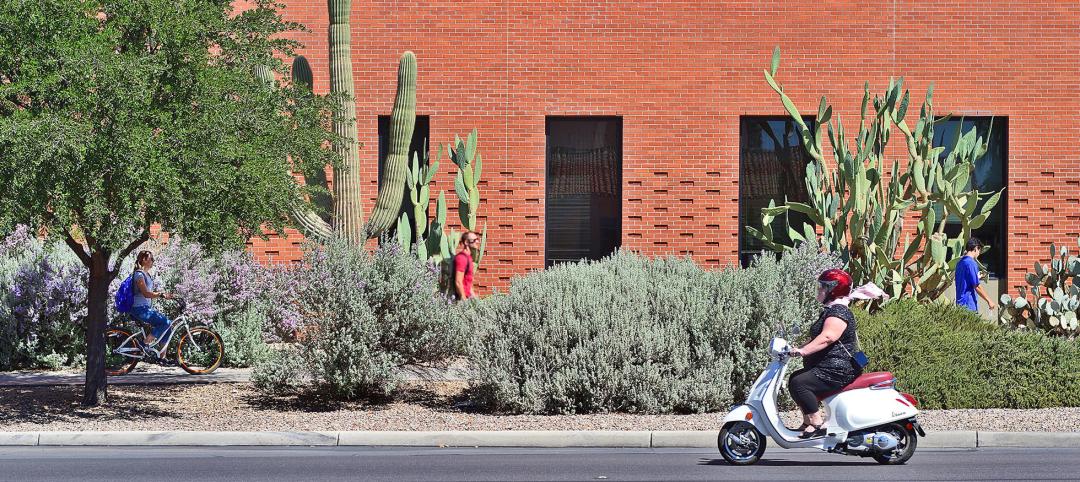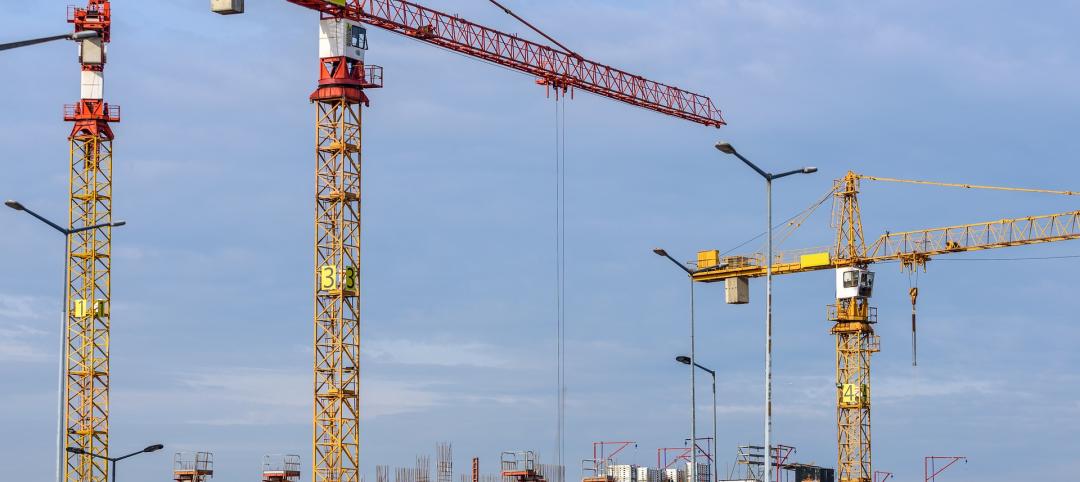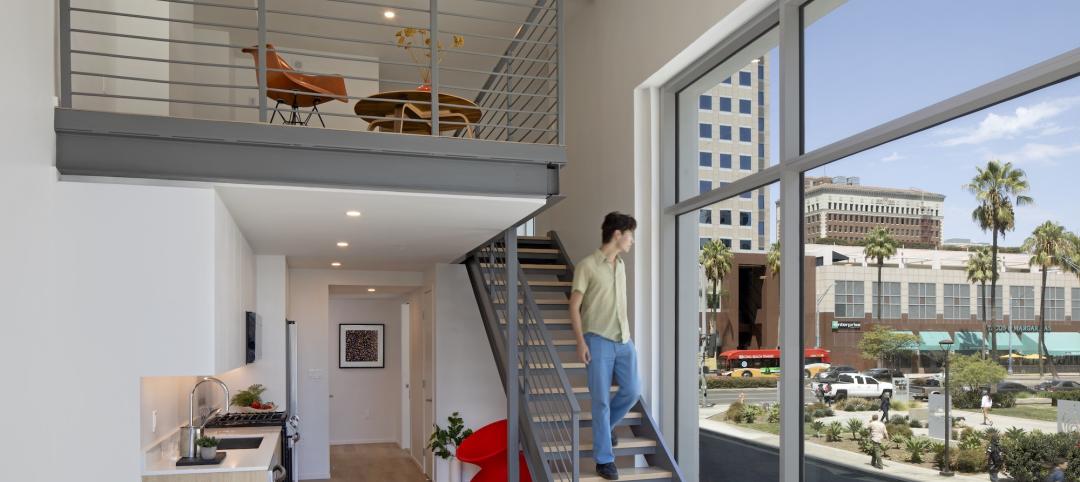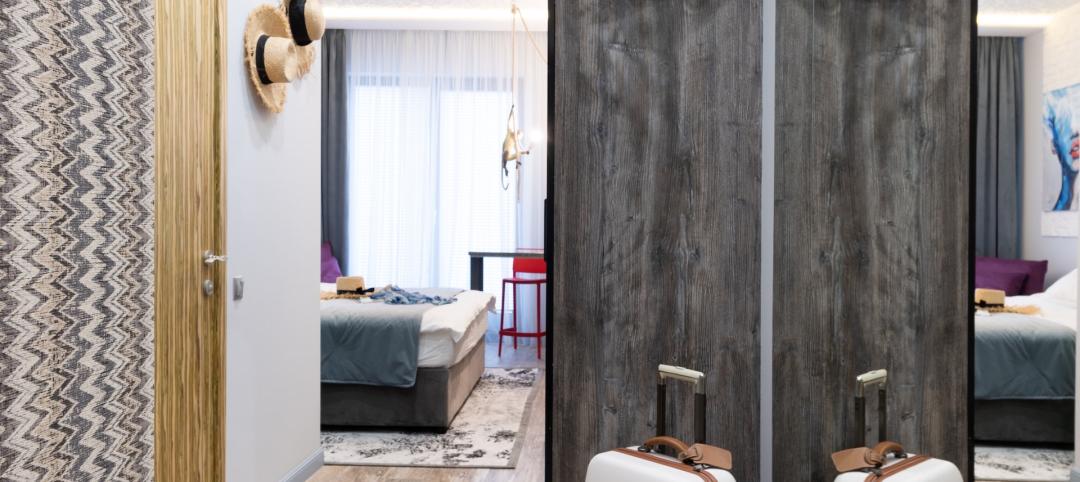Yvonne Farrell and Shelley McNamara of Dublin, Ireland, have been selected as the 2020 Pritzker Prize Laureates, announced Tom Pritzker, Chairman of The Hyatt Foundation, which sponsors the award that is known internationally as architecture’s highest honor.
“Architecture could be described as one of the most complex and important cultural activities on the planet,” remarks Farrell. “To be an architect is an enormous privilege. To win this prize is a wonderful endorsement of our belief in architecture. Thank you for this great honor.”
As architects and educators since the 1970s, Farrell and McNamara create spaces that are at once respectful and new, honoring history while demonstrating a mastery of the urban environment and craft of construction. Balancing strength and delicacy, and upholding a reverence of site-specific contexts, their academic, civic and cultural institutions, as well as housing developments, result in modern and impactful works that never repeat or imitate, but are decidedly of their own architectural voice.
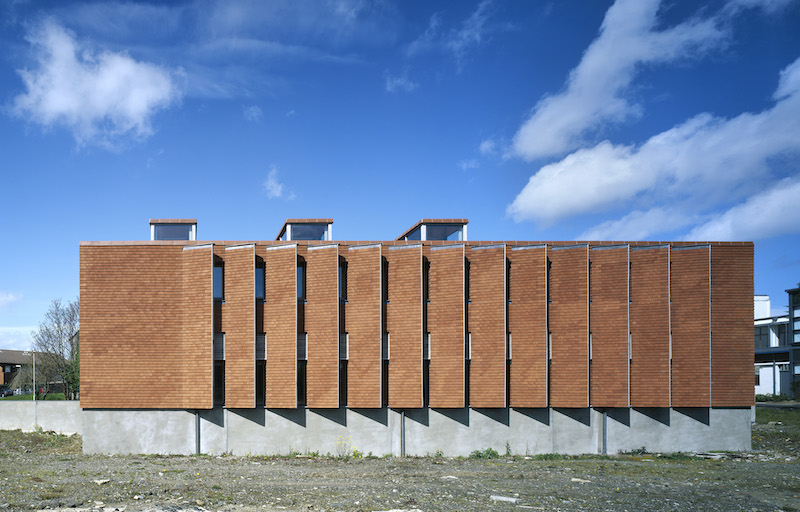 Urban Institute of Ireland. Photo: Ros Kavanagh.
Urban Institute of Ireland. Photo: Ros Kavanagh.
“For their integrity in their approach to both their buildings, as well as the way they conduct their practice, their belief in collaboration, their generosity towards their colleagues, especially as evidenced in such events as the 2018 Venice Biennale, their unceasing commitment to excellence in architecture, their responsible attitude toward the environment, their ability to be cosmopolitan while embracing the uniqueness of each place in which they work, for all these reasons and more, Yvonne Farrell and Shelley McNamara are awarded the 2020 Pritzker Architecture Prize,” states the 2020 Jury Citation, in part.
“Within the ethos of a practice such as ours, we have so often struggled to find space for the implementation of such values as humanism, craft, generosity, and cultural connection with each place and context within which we work. It is therefore extremely gratifying that this recognition is bestowed upon us and our practice and upon the body of work we have managed to produce over a long number of years,” says McNamara. “It is also a wonderful recognition of the ambition and vision of the clients who commissioned us and enabled us to bring our buildings to fruition.”
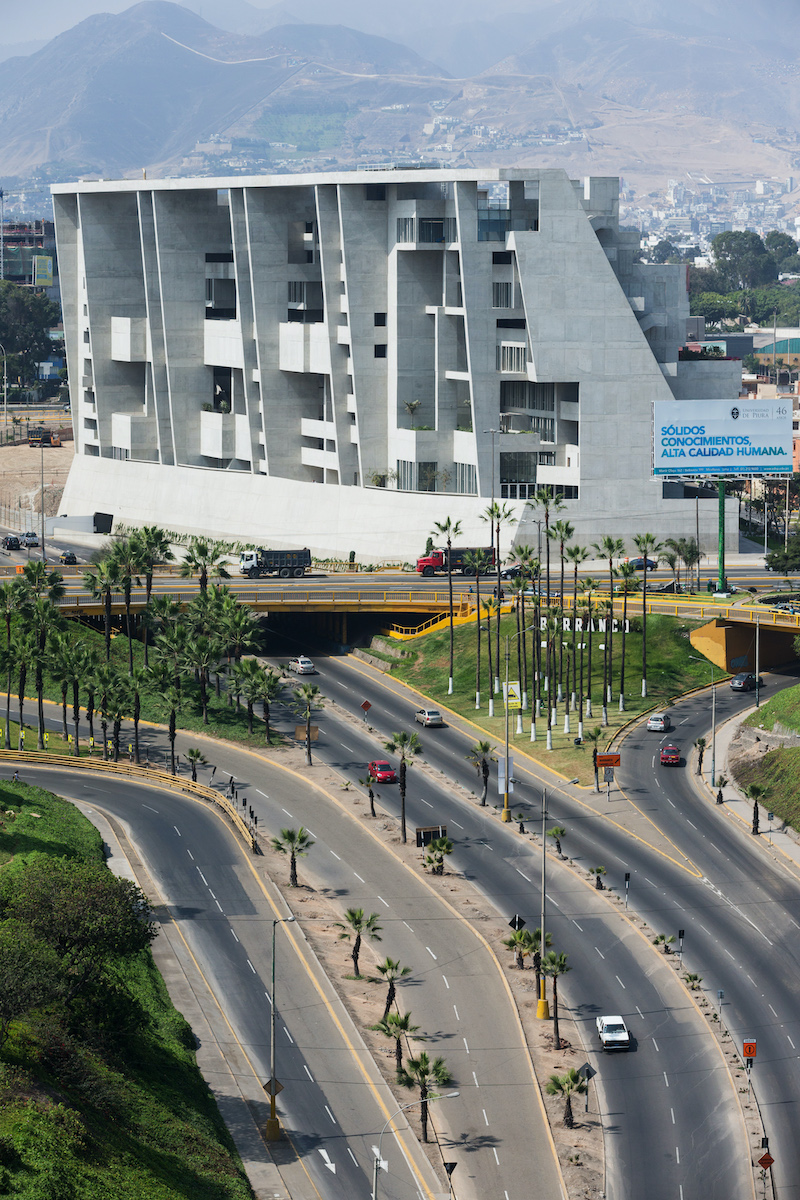 University Campus UTEC Lima. Photo: Iwan Baan.
University Campus UTEC Lima. Photo: Iwan Baan.
Their native Ireland, an island replete with mountains and cliffs, informs their acute sensitivities to geography, changing climates and nature in each of their sites. Their buildings consistently remain purposefully rich, yet modest, enhancing cities and lending to sustainability while responding to local needs. University Campus UTEC Lima (Lima, Peru 2015) is located on a challenging site with a highway sunk in a ravine on one side and a residential neighborhood on the other. The result is a vertical and cascading building responding to both site and climatic needs. Its open spaces were designed to deliberately welcome cooling breezes of the ocean and minimize the need for air-conditioning. At the Offices for the Department of Finance (Dublin, Ireland 2009), the selection of local limestone used in thick panels grants strength to the building. Windows recessed or flush with the façade have grills below them to circulate fresh air throughout the building. Exposures on all sides of the building, atypical of the architecture in this city, offer panoramic views.
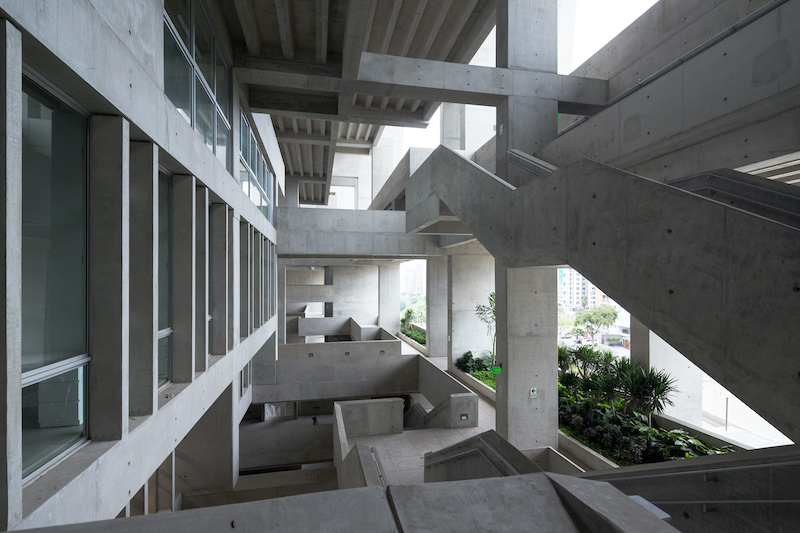 University Campus UTEC Lima. Photo: Iwan Baan.
University Campus UTEC Lima. Photo: Iwan Baan.
The architects are continuously conscious of the dialogue between the internal and external, evidenced by the mingling of public and private spaces, and the meaningful selection and integrity of materials. “What we try to do in our work is to be aware of the various levels of citizenship and try to find an architecture that deals with overlap, that heightens your relationship to one another,” illustrates Farrell. Universita Luigi Bocconi (Milan, Italy 2008) fosters community between its occupants and the vibrant city that extends well beyond the vertical campus through its ground floor public space, which continues indoors, and its floating canopy that overlaps the ground below, engaging passersby with students. Université Toulouse 1 Capitole, School of Economics (Toulouse, France 2019) is encased in concrete and stone that has been quarried from nearby Lake Iseo. Its brick buttresses, ramps and courtyards are a metaphor for the city filled with bridges, walls, promenades and stone towers. North King Street Housing (Dublin, Ireland 2000) is intentionally void of external design elements to resonate with the restraint of the neighboring warehouses.
“The collaboration between Yvonne Farrell and Shelley McNamara represents a veritable interconnectedness between equal counterparts,” states Pritzker. “They demonstrate incredible strength in their architecture, show deep relation to the local situation in all regards, establish different responses to each commission while maintaining the honesty of their work, and exceed the requirements of the field through responsibility and community.”
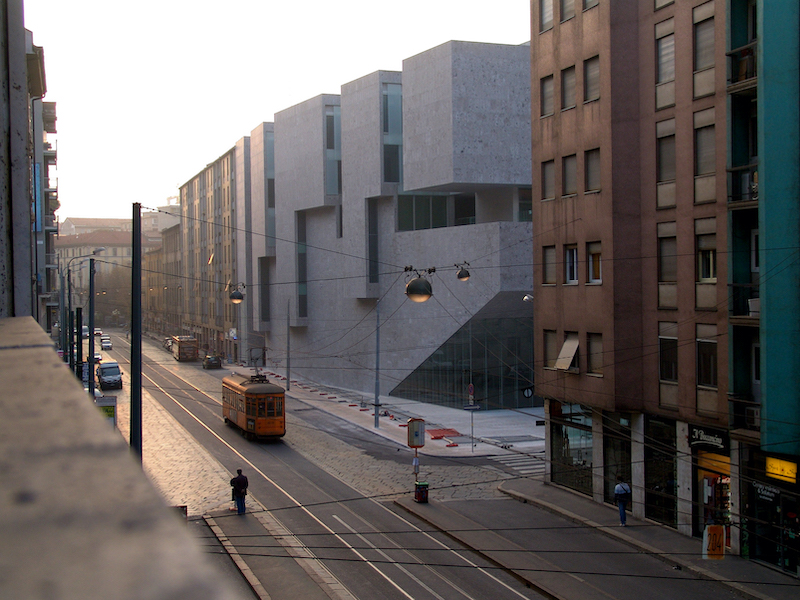 Universita Luigi Bocconi. Photo: Federico Brunetti.
Universita Luigi Bocconi. Photo: Federico Brunetti.
Farrell and McNamara have mastered proportion to maintain a human scale and achieve intimate environments within tall and vast buildings. “They have tried, with considerable success, to help us all overcome what is likely to evermore become a serious human problem,” explains Justice Stephen Breyer, Jury Chair. “Namely, how do we build housing and workplaces in a world with over half of its population dwelling in urban environments, and many of them who cannot afford luxury?” A contoured theater floor at the Solstice Arts Centre (Navan, Ireland 2008) creates a physical nearness between audience members and performers. The generous placement of open spaces, windows, glass curtain walls and exposed ceilings allows natural light to filter through a passage of
rooms, creating impressions of light through large and small spaces, and within the interlocking areas that compose Institut Mines Télécom in Palaiseau (Paris, France 2019).
McNamara states, “Architecture is a framework for human life. It anchors us and connects us to the world in a way which possibly no other space-making discipline can.” Farrell continues, “At the core of our practice is a real belief that architecture matters. It is a cultural spatial phenomenon that people invent.”
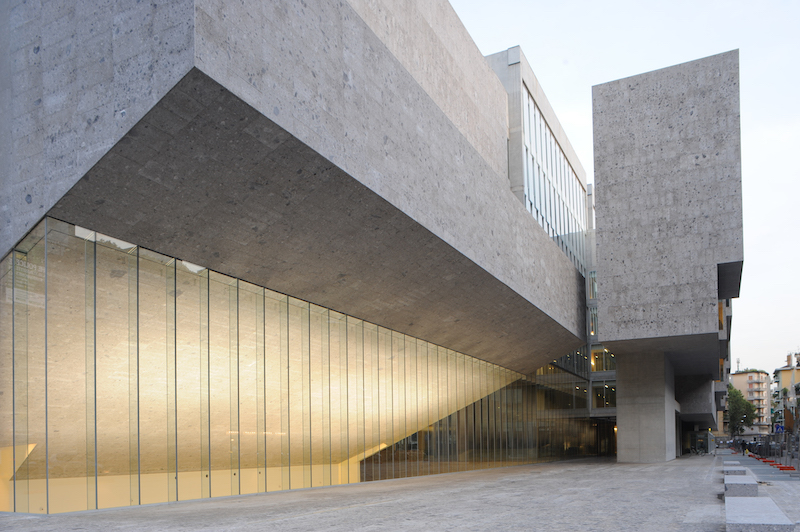 Universita Luigi Bocconi. Photo: Federico Brunetti.
Universita Luigi Bocconi. Photo: Federico Brunetti.
The pair established Grafton Architects in 1978 in Dublin, where they continue to practice and reside. In just over forty years, they have completed nearly as many projects, located in Ireland, the United Kingdom, France, Italy and Peru.
See Also: Arata Isozaki named 2019 Pritzker Architecture Prize Laureate
Farrell and McNamara are the 47th and 48th Laureates of the Pritzker Prize, and the first two recipients from Ireland.
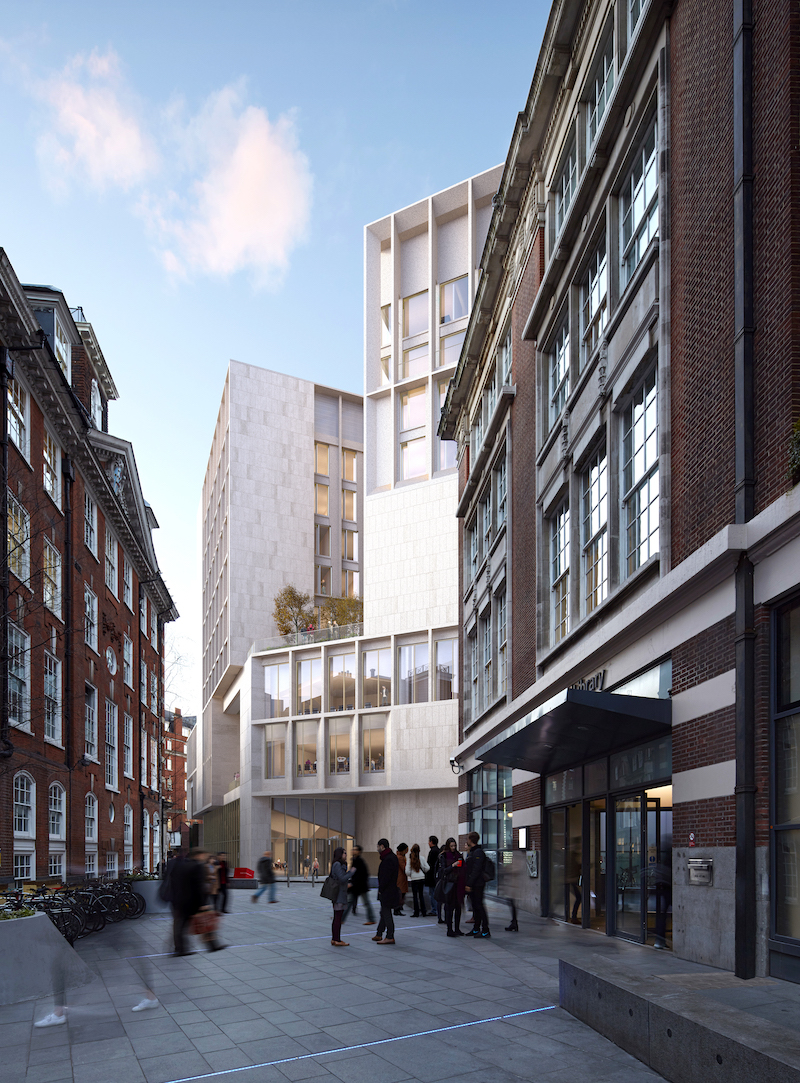 London School of Economics and Political Science. Photo: Grafton Architects.
London School of Economics and Political Science. Photo: Grafton Architects.
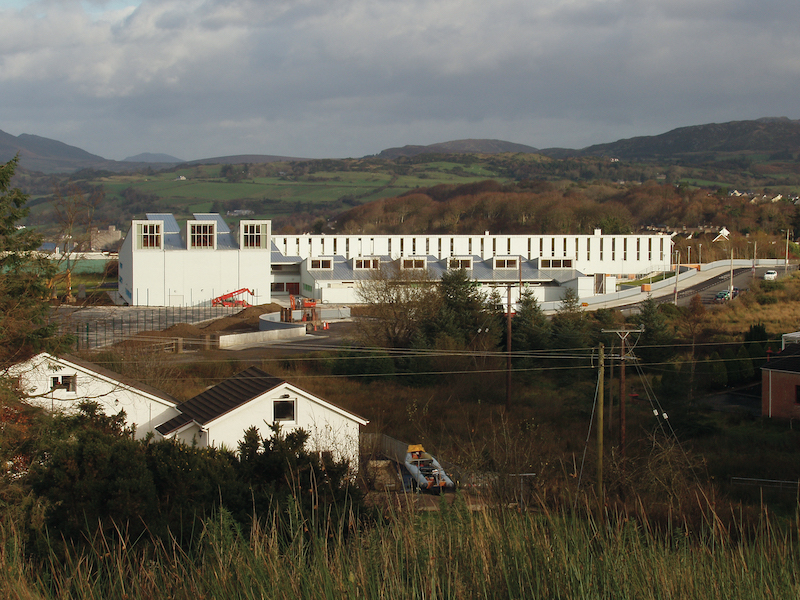 Loreto Community School. Photo: Ros Kavanagh.
Loreto Community School. Photo: Ros Kavanagh.
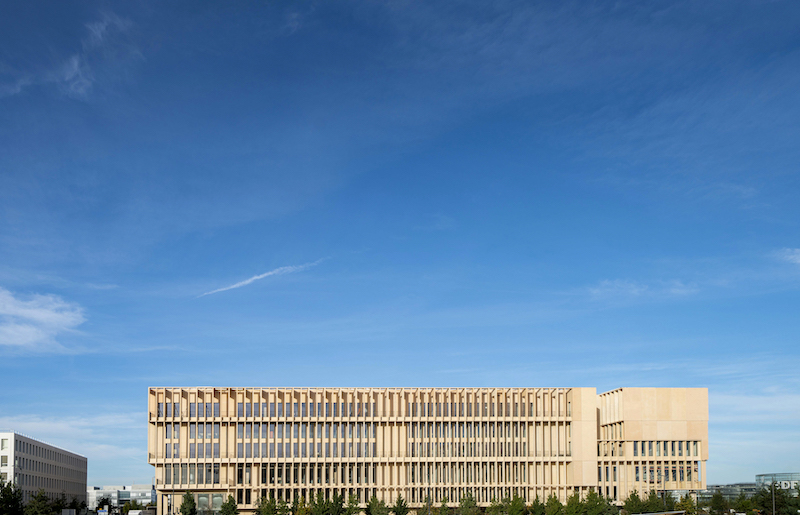 Institut Mines Télécom. Photo: Alexandre Soria.
Institut Mines Télécom. Photo: Alexandre Soria.
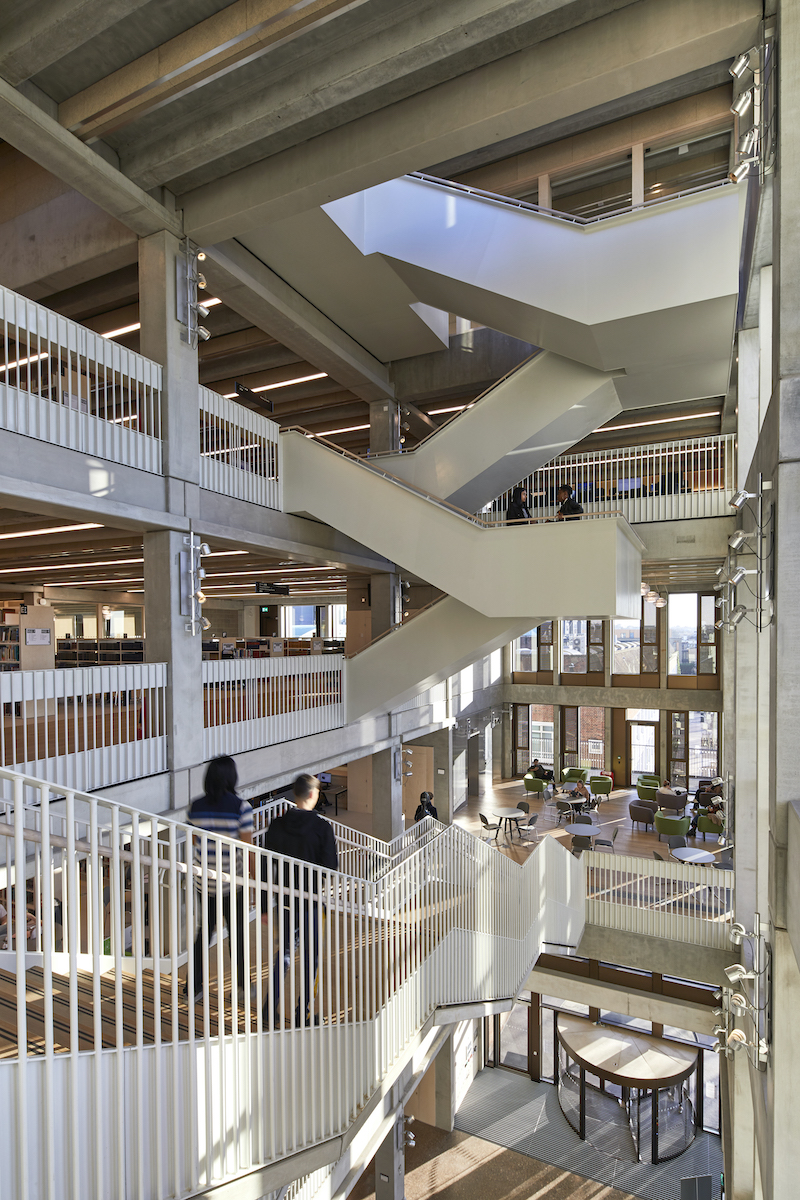 Town House Building, Kingston University. Photo: Ed Reeves.
Town House Building, Kingston University. Photo: Ed Reeves.
Related Stories
Mass Timber | Jan 27, 2023
How to set up your next mass timber construction project for success
XL Construction co-founder Dave Beck shares important preconstruction steps for designing and building mass timber buildings.
Sports and Recreational Facilities | Jan 26, 2023
Miami’s motorsport ‘country club’ to build sleek events center
Designed by renowned Italian design firm Pininfarina and with Revuelta as architect, The Event Campus at The Concours Club will be the first and only motorsport-based event campus located within minutes of a major metro area.
Student Housing | Jan 26, 2023
6 ways 'choice architecture' enhances student well-being in residence halls
The environments we build and inhabit shape our lives and the choices we make. NAC Architecture's Lauren Scranton shares six strategies for enhancing well-being in residence halls.
K-12 Schools | Jan 25, 2023
As gun incidents grow, schools have beefed up security significantly in recent years
Recently released federal data shows that U.S. schools have significantly raised security measures in recent years. About two-thirds of public schools now control access to school grounds—not just the building—up from about half in the 2017-18 school year.
AEC Tech Innovation | Jan 24, 2023
ConTech investment weathered last year’s shaky economy
Investment in construction technology (ConTech) hit $5.38 billion last year (less than a 1% falloff compared to 2021) from 228 deals, according to CEMEX Ventures’ estimates. The firm announced its top 50 construction technology startups of 2023.
Sports and Recreational Facilities | Jan 24, 2023
Nashville boasts the largest soccer-specific stadium in the U.S. and Canada
At 30,105 seats and 530,000 sf, GEODIS Park, which opened in 2022, is the largest soccer-specific stadium in the U.S. and Canada. Created by design firms Populous and HASTINGS in collaboration with the Metro Nashville Sports Authority, GEODIS Park serves as the home of the Nashville Soccer Club as well as a venue for performances and events.
Concrete | Jan 24, 2023
Researchers investigate ancient Roman concrete to make durable, lower carbon mortar
Researchers have turned to an ancient Roman concrete recipe to develop more durable concrete that lasts for centuries and can potentially reduce the carbon impact of the built environment.
Architects | Jan 23, 2023
PSMJ report: The fed’s wrecking ball is hitting the private construction sector
Inflation may be starting to show some signs of cooling, but the Fed isn’t backing down anytime soon and the impact is becoming more noticeable in the architecture, engineering, and construction (A/E/C) space. The overall A/E/C outlook continues a downward trend and this is driven largely by the freefall happening in key private-sector markets.
Multifamily Housing | Jan 23, 2023
Long Beach, Calif., office tower converted to market rate multifamily housing
A project to convert an underperforming mid-century office tower in Long Beach, Calif., created badly needed market rate housing with a significantly lowered carbon footprint. The adaptive reuse project, composed of 203,177 sf including parking, created 106 apartment units out of a Class B office building that had been vacant for about 10 years.
Hotel Facilities | Jan 23, 2023
U.S. hotel construction pipeline up 14% to close out 2022
At the end of 2022’s fourth quarter, the U.S. construction pipeline was up 14% by projects and 12% by rooms year-over-year, according to Lodging Econometrics.


